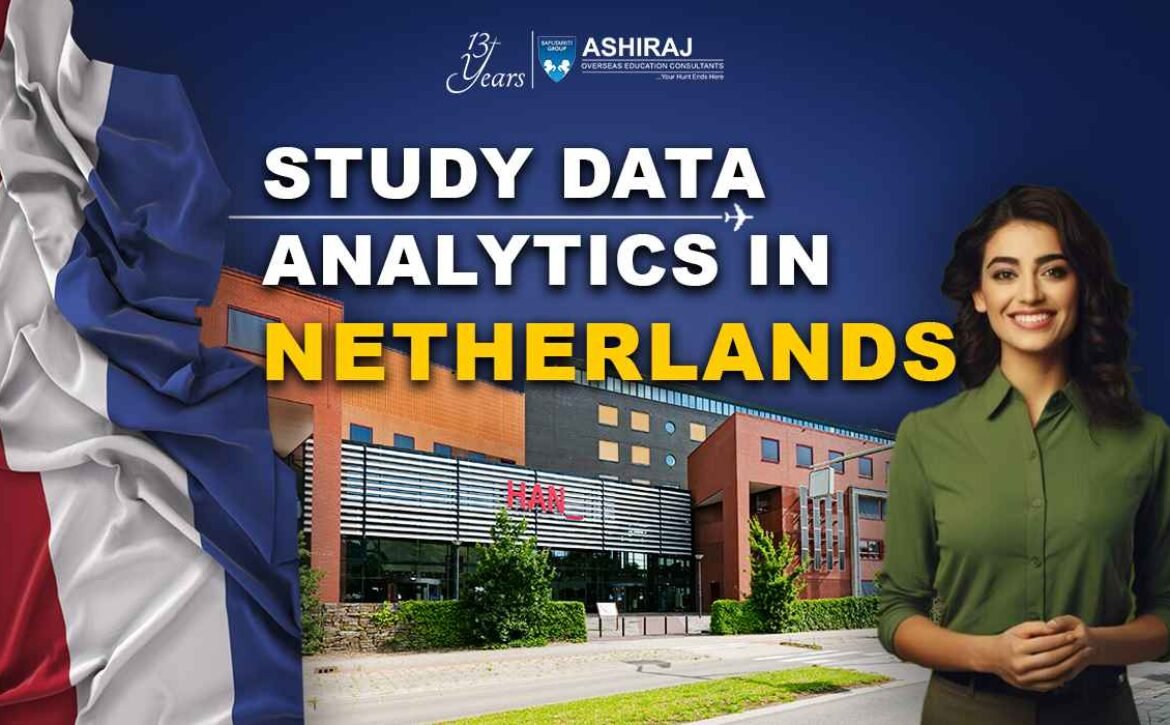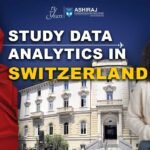
Data Analytics in Netherland
Unlocking insights and driving informed decision-making, Data Analytics in the Netherlands stands at the forefront of technological innovation and strategic planning. With a burgeoning digital landscape and a proactive approach towards data utilization, the Netherlands emerges as a dynamic hub for analytics-driven solutions. From optimizing business operations to enhancing customer experiences, organizations across various sectors harness the power of data analytics to gain a competitive edge in today’s fast-paced economy.
In the realm of Data Analytics in the Netherlands, advanced methodologies intersect with a rich tapestry of industries, including finance, healthcare, and agriculture, fostering innovation and efficiency. Leveraging cutting-edge technologies and robust infrastructures, Dutch enterprises delve deep into data streams to extract actionable insights, driving growth and fostering sustainable development. Amidst a landscape characterized by data abundance, the Netherlands epitomizes a paradigm shift towards data-centric strategies, paving the way for a future where analytics is not just a tool but a cornerstone of organizational success.
Why to Study Data Analytics in Netherlands?
- Thriving Industry: The Netherlands boasts a robust data analytics industry, offering ample opportunities for students to gain practical experience and establish a rewarding career path.
- Cutting-edge Education: Universities in the Netherlands provide cutting-edge education in data analytics, equipping students with the skills and knowledge needed to excel in this rapidly evolving field.
- Global Perspective: Studying data analytics in the Netherlands offers a global perspective, with opportunities to collaborate with diverse international students and professionals.
- Industry Collaboration: Many academic institutions in the Netherlands collaborate closely with industry partners, providing students with real-world projects and internships to apply their learning in practical settings.
- Innovation Hub: The Netherlands is renowned for its innovation ecosystem, making it an ideal location for students to immerse themselves in the latest trends and technologies shaping the field of data analytics.
- Networking Opportunities: Students studying data analytics in the Netherlands have access to a vast network of professionals and experts in the field, facilitating mentorship and career growth.
- High Quality of Life: With its high quality of life and multicultural environment, the Netherlands offers an attractive destination for international students pursuing studies in data analytics.
Top Universities to Study Data Analytics in Netherlands
University | QS World University Rankings 2023 | Type of University | Average Annual Fees | Programs Offered |
University of Amsterdam | 25 | Public | €2,168 – €15,000 | Bachelor’s & Master’s in Data Science, Analytics, and Business Information Systems |
Delft University of Technology | 57 | Public | €2,209 – €14,500 | Bachelor’s & Master’s in Data Science and Analytics |
Erasmus University Rotterdam | 72 | Public | €2,209 – €14,500 | Bachelor’s & Master’s in Data Science, Business Analytics, and Econometrics |
University of Groningen | 92 | Public | €2,209 – €14,500 | Bachelor’s & Master’s in Data Science and Artificial Intelligence |
Utrecht University | 121 | Public | €2,209 – €14,500 | Bachelor’s & Master’s in Data Science, Artificial Intelligence, and Business Informatics |
Studying Data Analytics in the Netherlands offers students access to some of the world’s top-ranked universities renowned for their quality education and research. Here are the top 5 universities in the Netherlands for Data Analytics based on the QS World University Rankings 2023:
- University of Amsterdam: Ranked 25th globally, it offers Bachelor’s and Master’s programs in Data Science, Analytics, and Business Information Systems.
- Delft University of Technology: Ranked 57th globally, it offers Bachelor’s and Master’s programs in Data Science and Analytics.
- Erasmus University Rotterdam: Ranked 72nd globally, it offers Bachelor’s and Master’s programs in Data Science, Business Analytics, and Econometrics.
- University of Groningen: Ranked 92nd globally, it offers Bachelor’s and Master’s programs in Data Science and Artificial Intelligence.
- Utrecht University: Ranked 121st globally, it offers Bachelor’s and Master’s programs in Data Science, Artificial Intelligence, and Business Informatics.
Course Curriculum for Data Analytics in Netherlands
- Foundational Concepts: The course curriculum typically begins with foundational concepts in data analytics, covering topics such as data types, data structures, and basic statistical methods.
- Data Mining Techniques: Students delve into various data mining techniques, including clustering, classification, and association analysis, to extract meaningful patterns and insights from large datasets.
- Programming Skills: Emphasis is placed on developing programming skills, particularly in languages like Python, R, and SQL, essential for data manipulation, analysis, and visualization.
- Machine Learning Algorithms: The curriculum includes a comprehensive study of machine learning algorithms, such as regression, decision trees, and neural networks, and their applications in predictive analytics and pattern recognition.
- Big Data Technologies: Students gain exposure to big data technologies like Hadoop, Spark, and NoSQL databases, learning how to efficiently process and analyze large volumes of data.
- Data Visualization: Courses often cover data visualization techniques and tools like Tableau and Power BI, enabling students to effectively communicate insights derived from data analysis.
- Ethical and Legal Considerations: There’s a focus on understanding the ethical and legal implications of data analytics, including privacy concerns, data security, and compliance with regulations such as GDPR.
- Practical Projects: The curriculum typically includes hands-on projects and case studies, allowing students to apply their skills to real-world data analytics challenges and gain practical experience.
- Industry Internships: Many programs offer opportunities for industry internships, providing students with valuable exposure to the professional practice of data analytics and enhancing their employability upon graduation.
- Specialization Tracks: Some programs offer specialization tracks in areas such as business analytics, healthcare analytics, or financial analytics, allowing students to tailor their education to their career goals within the Data Analytics in NETHERLAND field.
Eligibility Criteria & Admission Requirements for MS in Data Analytics in Netherlands
- Language Proficiency: Applicants must demonstrate proficiency in English by providing scores from either the IELTS or TOEFL exams. The minimum required scores for IELTS are typically around 6.5 overall, with no sub-score lower than 6.0. For TOEFL, a minimum score of 90 is usually required.
- Standardized Tests: Most universities also require scores from either the GRE or GMAT exams as part of the application process. The minimum score requirements vary between institutions but generally fall within the range of 300-320 for GRE and 600-650 for GMAT.
- Educational Qualifications: Applicants are typically required to hold a bachelor’s degree from a recognized institution, preferably in a related field such as computer science, mathematics, statistics, or engineering.
- Passport & Student Visa: International students must possess a valid passport and obtain a student visa to study in the Netherlands. The visa application process may vary depending on the applicant’s country of origin.
- Academic Certificates: Applicants must submit transcripts and academic certificates from previous educational institutions as part of the application process.
- Work Experience: While not always mandatory, some programs may prefer or require applicants to have relevant work experience in data analytics or a related field. Work experience can strengthen an applicant’s profile and demonstrate practical knowledge in the field.
Test | Minimum Score |
IELTS | 6.5 overall (no sub-score lower than 6.0) |
TOEFL | 90 |
GRE | 300-320 |
GMAT | 600-650 |
Meeting the eligibility criteria ensures that candidates are well-prepared for the rigors of Data Analytics in the Netherlands programs, fostering a diverse and capable cohort of students.
Documents Required for Studying Data Analytics in Netherlands
- Passport: A valid passport is essential for international students applying to study Data Analytics in the Netherlands. It serves as proof of identity and nationality.
- Letters of Recommendation (LOR): Applicants typically need to provide two or more LORs from academic or professional referees who can attest to their skills, qualifications, and suitability for the program.
- Statement of Purpose (SOP): An SOP outlines the applicant’s academic and professional background, career goals, and reasons for choosing the Data Analytics program in the Netherlands. It helps admissions committees assess the candidate’s motivations and aspirations.
- Curriculum Vitae (CV): A CV summarizes the applicant’s educational qualifications, work experience, skills, and achievements. It provides a comprehensive overview of the candidate’s profile.
- Official High School Transcripts and Certificates: Applicants must submit transcripts and certificates from their high school or secondary education, demonstrating their academic performance and completion of relevant coursework.
- Work Experience Certificate: If applicable, applicants should provide a work experience certificate verifying their professional experience in Data Analytics or related fields.
- Proof of Financial Resources: To obtain a student visa, applicants must demonstrate sufficient financial resources to cover tuition fees, living expenses, and other costs associated with studying in the Netherlands. This may include bank statements, sponsorship letters, or scholarship awards.
Ensuring the timely submission of these documents is crucial for a smooth application process and admission to Data Analytics in the Netherlands programs.
Admission Process for Data Analytics in Netherlands
- Research Programs: Begin by researching Data Analytics programs offered by universities in the Netherlands to find the one that best fits your academic and career goals within Data Analytics in NETHERLAND.
- Check Eligibility: Review the eligibility criteria for each program, ensuring you meet the requirements related to academic qualifications, language proficiency, and standardized test scores.
- Gather Documents: Collect all required documents, including academic transcripts, standardized test scores (such as GRE or GMAT, IELTS, or TOEFL), letters of recommendation (LOR), statement of purpose (SOP), curriculum vitae (CV), and proof of financial resources.
- Submit Application: Complete the online application form provided by your chosen university, ensuring all required fields are accurately filled out and all necessary documents are uploaded.
- Pay Application Fee: Pay the application fee as specified by the university, if applicable, to complete the submission process.
- Await Decision: After submitting your application, wait for the university to review your materials and make an admission decision. This process may take several weeks, so be patient.
- Receive Offer Letter: If accepted, you will receive an offer letter from the university outlining the terms of your admission, including any conditions that must be met before enrollment.
- Accept Offer and Enroll: Upon receiving the offer letter, follow the instructions provided to accept the offer and complete the enrollment process, including paying any required deposits and securing your student visa.
Following these steps diligently will help streamline the admission process for pursuing Data Analytics in the Netherlands, ensuring a smooth transition into your chosen program.
“Education is the most powerful weapon which you can use to change the world.”
Nelson Mandela
Cost of Data Analytics Course in Netherlands
- Tuition Fees: The cost of tuition for Data Analytics programs in the Netherlands varies depending on the university and the level of study (Bachelor’s or Master’s). On average, international students can expect to pay between €8,000 to €20,000 per year for tuition.
- Living Expenses: In addition to tuition fees, students must budget for living expenses such as accommodation, food, transportation, and personal expenses. The cost of living in the Netherlands is relatively high compared to other European countries, with expenses ranging from €800 to €1,200 per month.
- Health Insurance: International students are required to have health insurance while studying in the Netherlands. The cost of health insurance varies depending on the provider and coverage options but typically ranges from €80 to €120 per month.
- Books and Materials: Students should budget for the cost of books, study materials, and other academic resources required for their Data Analytics courses. This expense can vary but is typically around €500 to €800 per year.
- Visa and Residence Permit: International students may need to pay fees for a student visa and residence permit to study Data Analytics in the Netherlands. The visa application fee is approximately €174, and the residence permit fee is around €207.
- Additional Costs: There may be additional costs such as travel expenses, visa renewal fees, and extracurricular activities. Students need to budget carefully and plan for unforeseen expenses to ensure a comfortable and financially stable experience while pursuing Data Analytics in the Netherlands.
Scholarships for Data Analytics Courses in Netherlands
Scholarship Name | Amount | Application Deadline |
Holland Scholarship | €5,000 to €25,000 | 1st February |
Erasmus Mundus Scholarships | Varies | Varies |
Amsterdam Excellence Scholarship | Full tuition waiver | 15th January |
University of Twente Scholarship | €3,000 to €25,000 | 1st May |
Orange Tulip Scholarship | Varies | Varies |
Scholarships play a crucial role in making Data Analytics in the Netherlands education accessible to students from diverse backgrounds. Here are some prominent scholarships available for aspiring students:
- Holland Scholarship: Offers financial support ranging from €5,000 to €25,000 to non-EEA international students pursuing Bachelor’s or Master’s degrees in the Netherlands. The application deadline is usually on 1st February.
- Erasmus Mundus Scholarships: Provides full or partial funding to international students participating in Erasmus Mundus Joint Master’s Degree programs, including those in Data Analytics. Application deadlines vary depending on the specific program.
- Amsterdam Excellence Scholarship: Offers a full tuition fee waiver plus an additional €5,000 to €15,000 for living expenses to exceptionally talented non-EEA students applying for Master’s programs at the University of Amsterdam. The deadline for application submission is typically on the 15th of January.
- University of Twente Scholarship: Provides financial support ranging from €3,000 to €25,000 to outstanding students from both EU/EEA and non-EU/EEA countries pursuing Master’s programs, including Data Analytics, at the University of Twente. The deadline for application is on 1st May.
- Orange Tulip Scholarship: Offers various scholarships to international students from specific countries interested in studying in the Netherlands, including programs related to Data Analytics. Application deadlines vary depending on the scholarship provider and country of origin.
Career Opportunities After Data Analytics in Netherlands
Job Profile | Average Salary (per annum) |
Data Analyst | €40,000 – €60,000 |
Business Intelligence Analyst | €45,000 – €70,000 |
Data Scientist | €50,000 – €80,000 |
Data Engineer | €55,000 – €85,000 |
Machine Learning Engineer | €60,000 – €90,000 |
Data Analytics in the Netherlands opens up a plethora of career opportunities with lucrative salary prospects. Here are some of the prominent job profiles along with their average annual salaries:
- Data Analyst: Responsible for interpreting data, analyzing results, and providing insights to aid decision-making processes. The average salary ranges from €40,000 to €60,000 per annum.
- Business Intelligence Analyst: Focuses on collecting and analyzing business data to inform strategic decisions and improve organizational performance. The average salary varies between €45,000 to €70,000 annually.
- Data Scientist: Utilizes statistical analysis, machine learning, and programming skills to uncover patterns and trends in large datasets, with an average salary ranging from €50,000 to €80,000 per year.
- Data Engineer: Designs, constructs, and maintains data architectures and systems for processing and analyzing large volumes of data, with an average salary ranging from €55,000 to €85,000 annually.
- Machine Learning Engineer: Develops and deploys machine learning models and algorithms to automate processes and enhance data-driven decision-making, with an average salary between €60,000 to €90,000 per annum. These roles offer competitive salaries and ample opportunities for growth and advancement in the field of Data Analytics in the Netherlands.
Frequently Asked Questions About Data Analytics in Netherlands
The top universities include the University of Amsterdam, Delft University of Technology, Erasmus University Rotterdam, University of Groningen, and Utrecht University.
Tuition fees range from €8,000 to €20,000 per year, with living expenses averaging €800 to €1,200 per month.
Yes, scholarships such as the Holland Scholarship, Erasmus Mundus Scholarship, Amsterdam Excellence Scholarship, University of Twente Scholarship, and Orange Tulip Scholarship are available.
Applicants typically need an IELTS score of 6.5 overall (with no sub-score lower than 6.0) or a TOEFL score of at least 90.
Graduates can pursue careers as Data Analysts, Business Intelligence Analysts, Data Scientists, Data Engineers, and Machine Learning Engineers, with salaries ranging from €40,000 to €90,000 annually.
Many universities require GRE or GMAT scores, with typical GRE scores ranging from 300-320 and GMAT scores from 600-650.
Required documents include a valid passport, letters of recommendation, statement of purpose, CV, official transcripts, work experience certificates, and proof of financial resources.
Bachelor’s programs typically last three years, while Master’s programs usually take one to two years.
While not always mandatory, relevant work experience can strengthen an application and may be preferred by some programs.
Application deadlines vary by university, but common deadlines are 1st February for the Holland Scholarship and 15th January for the Amsterdam Excellence Scholarship. Always check the specific deadlines for each university and program.




